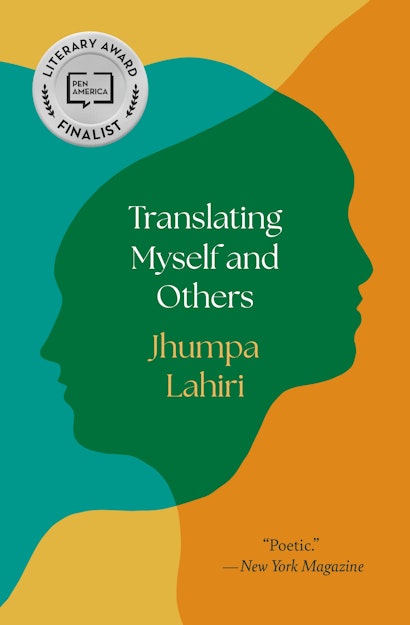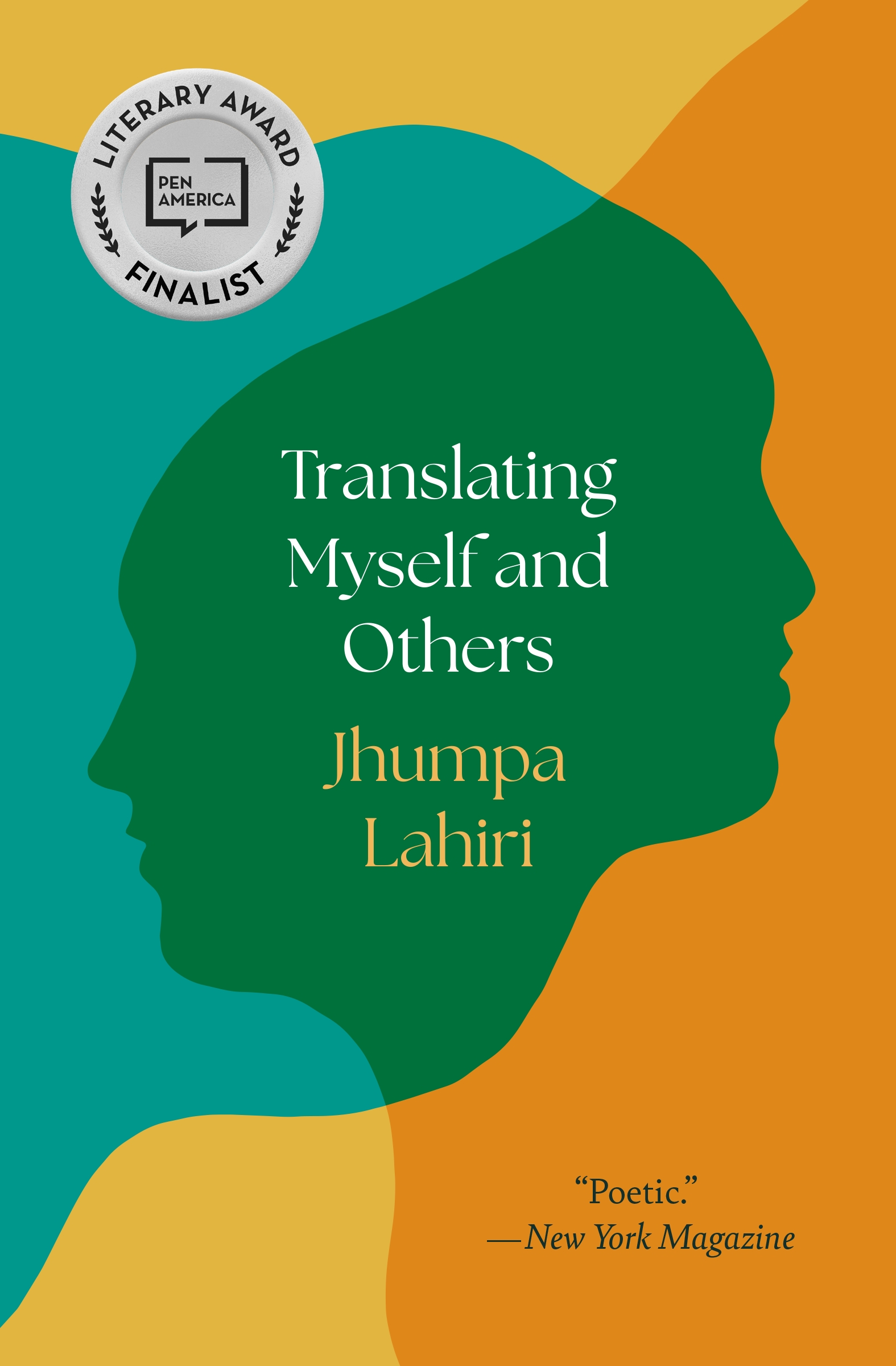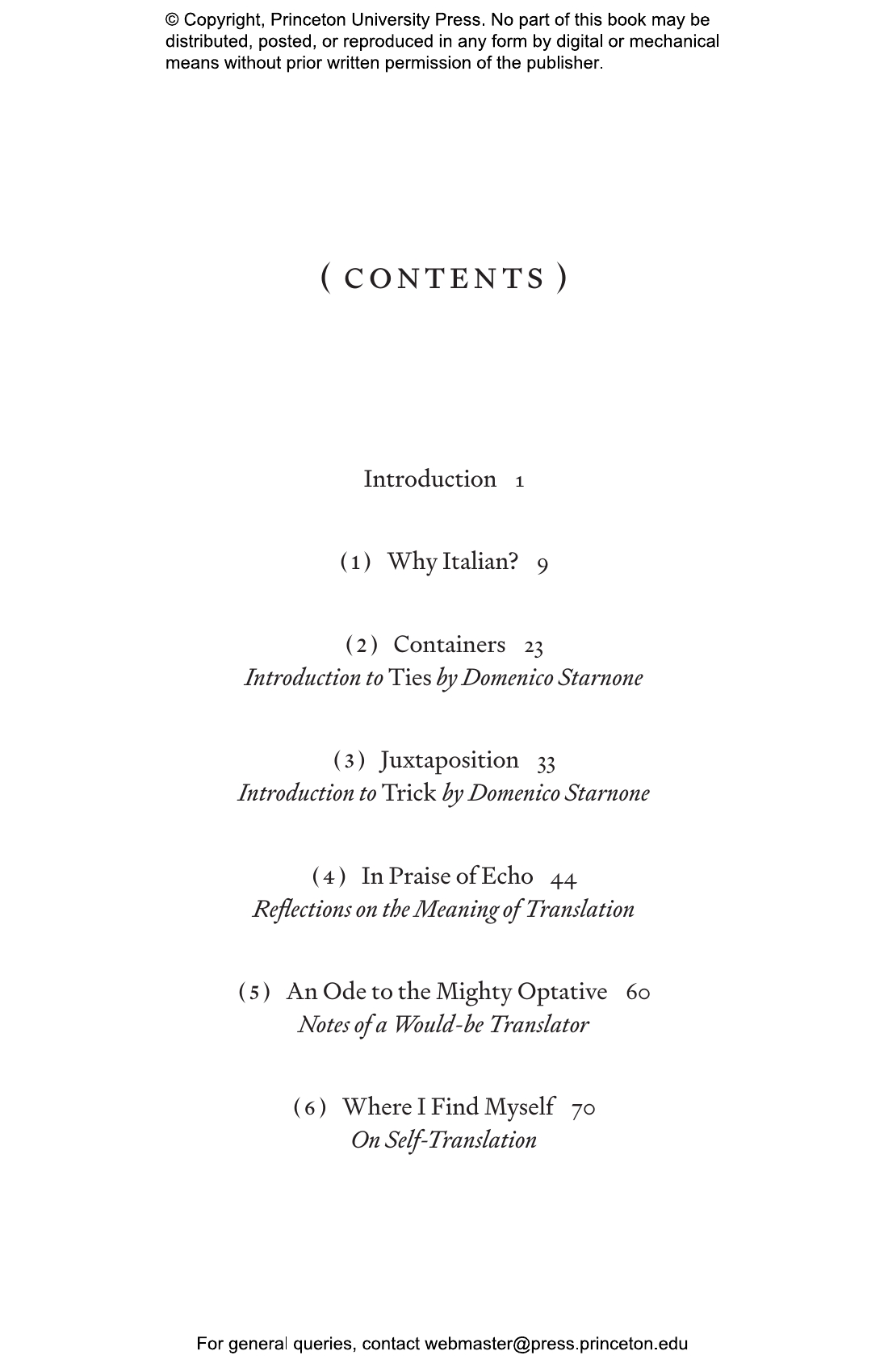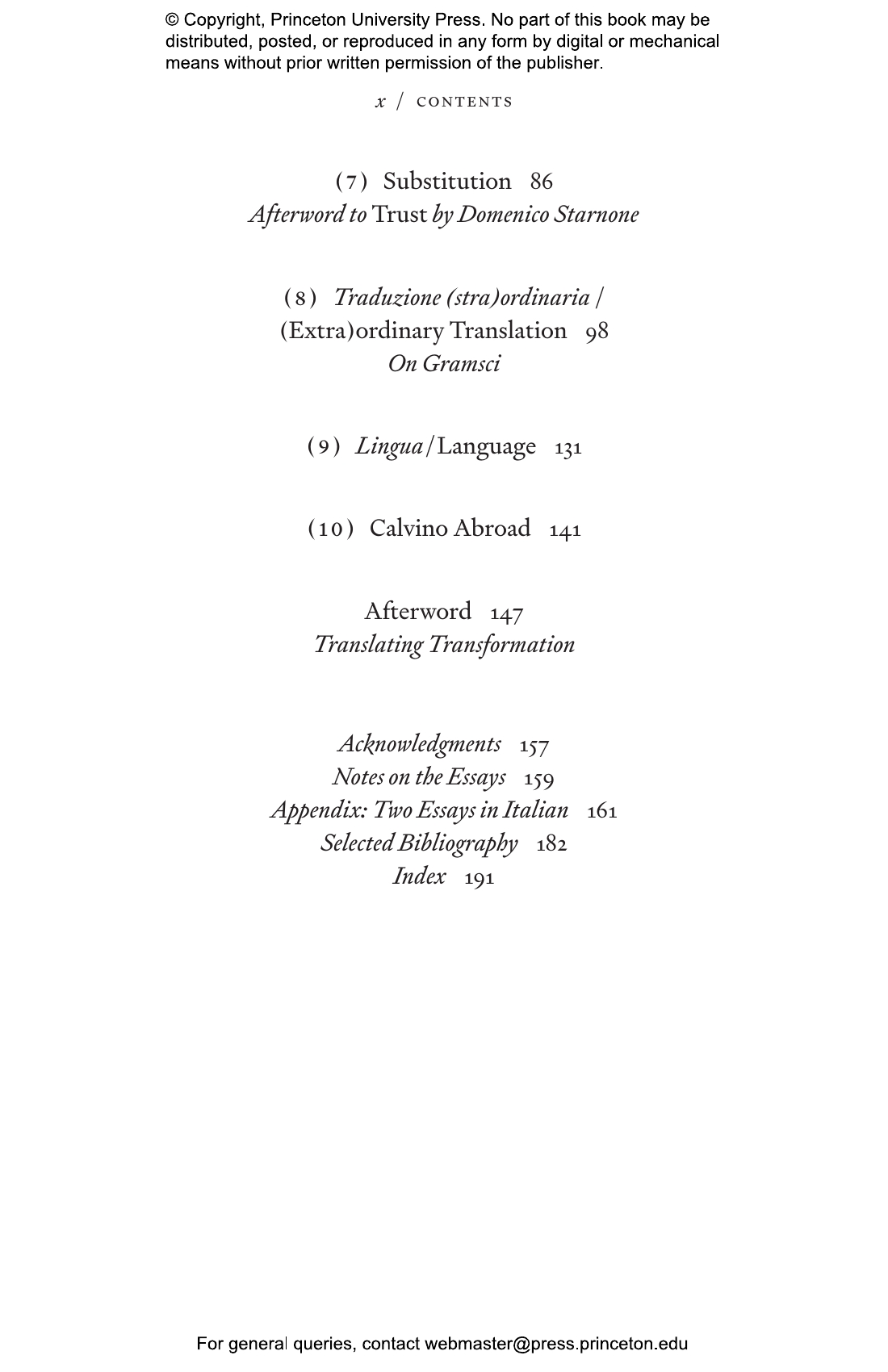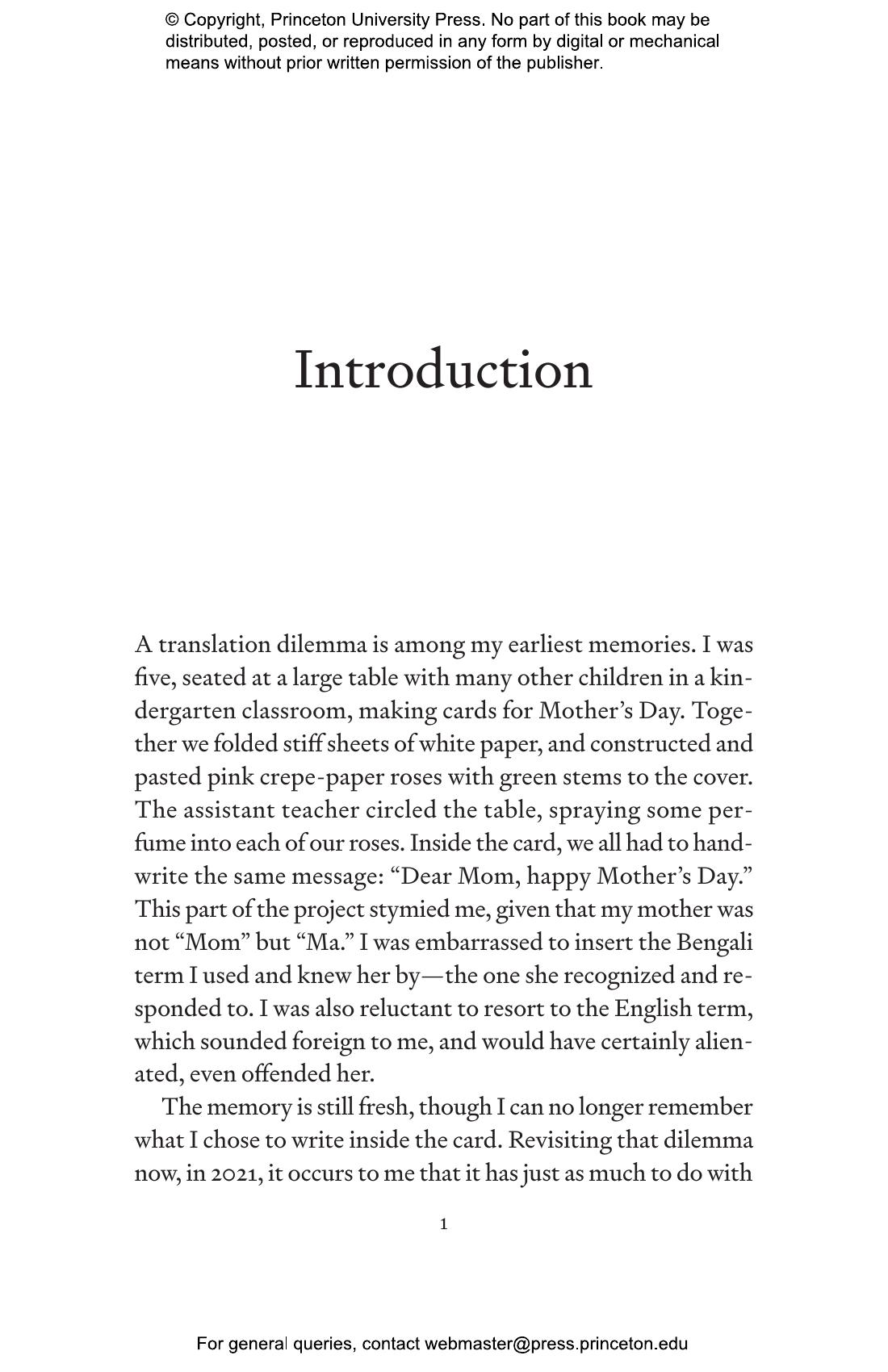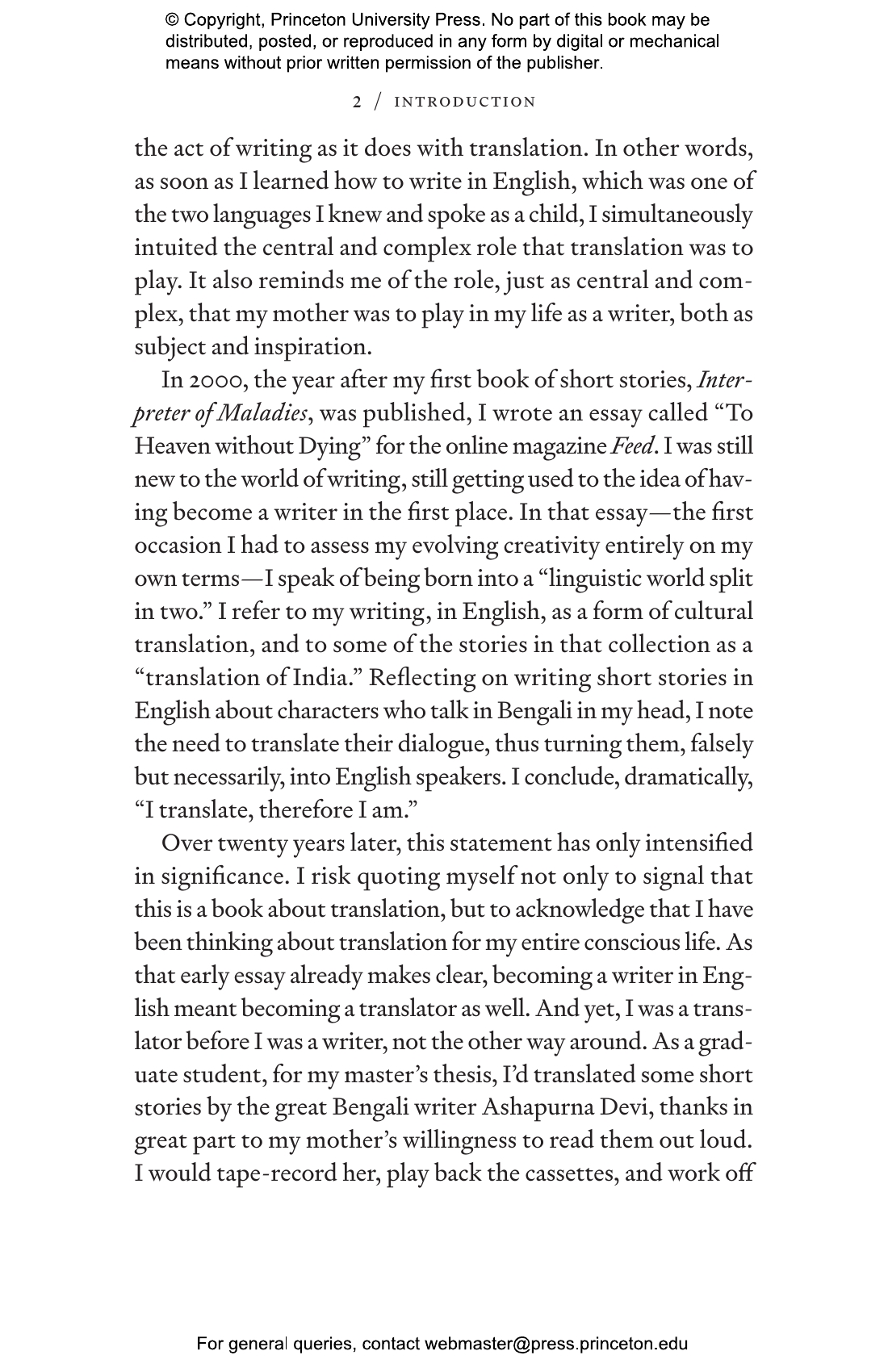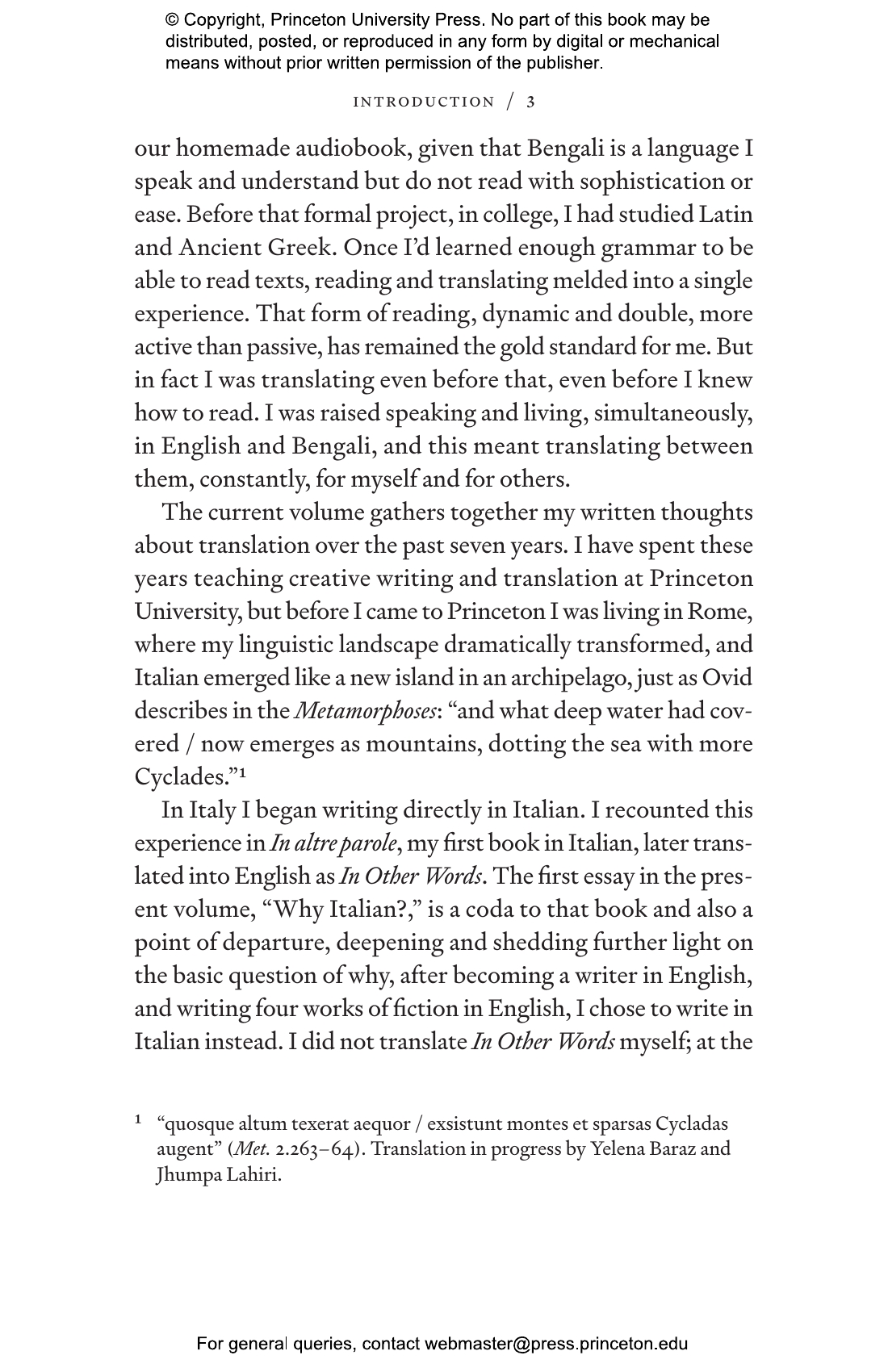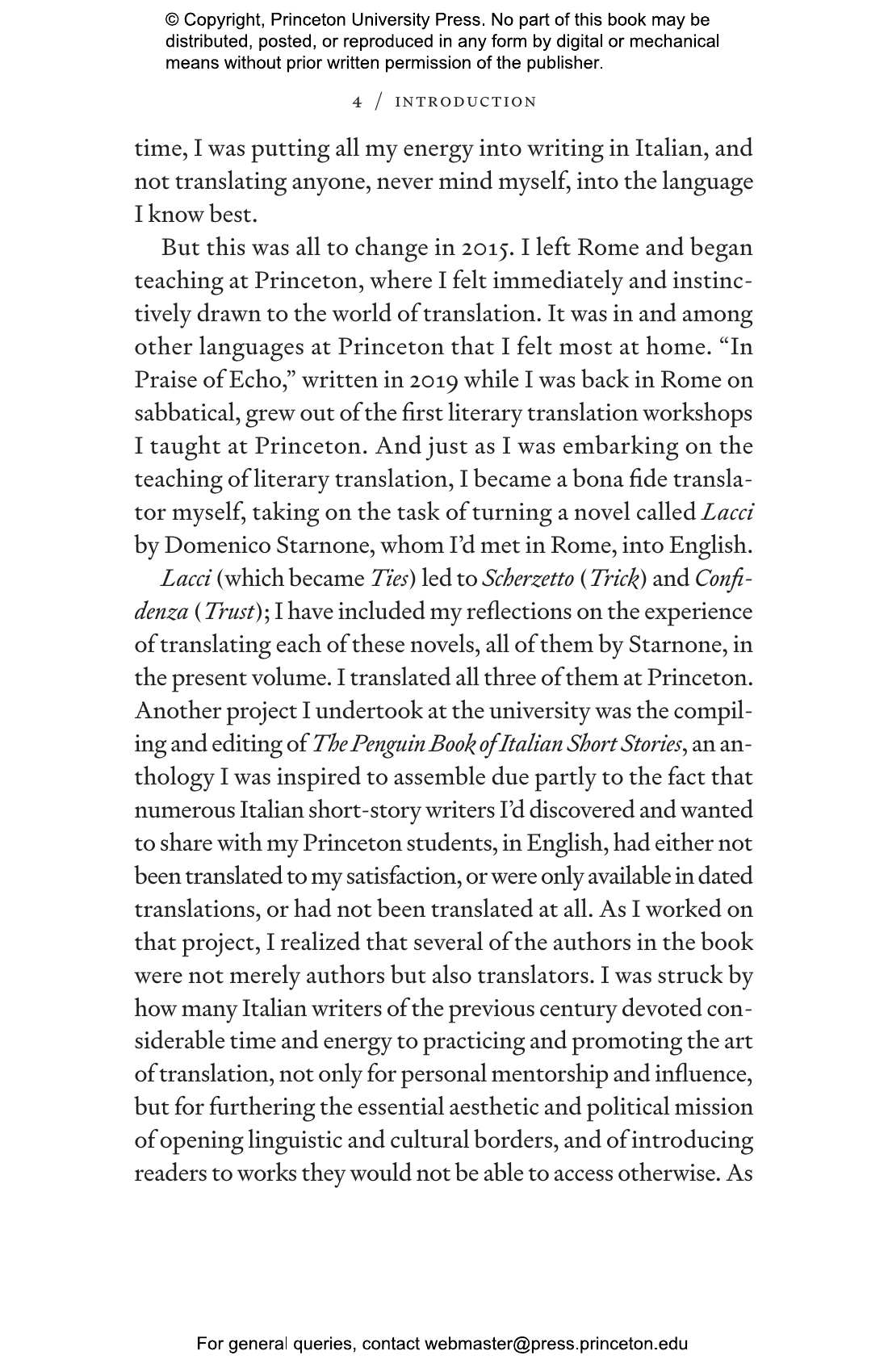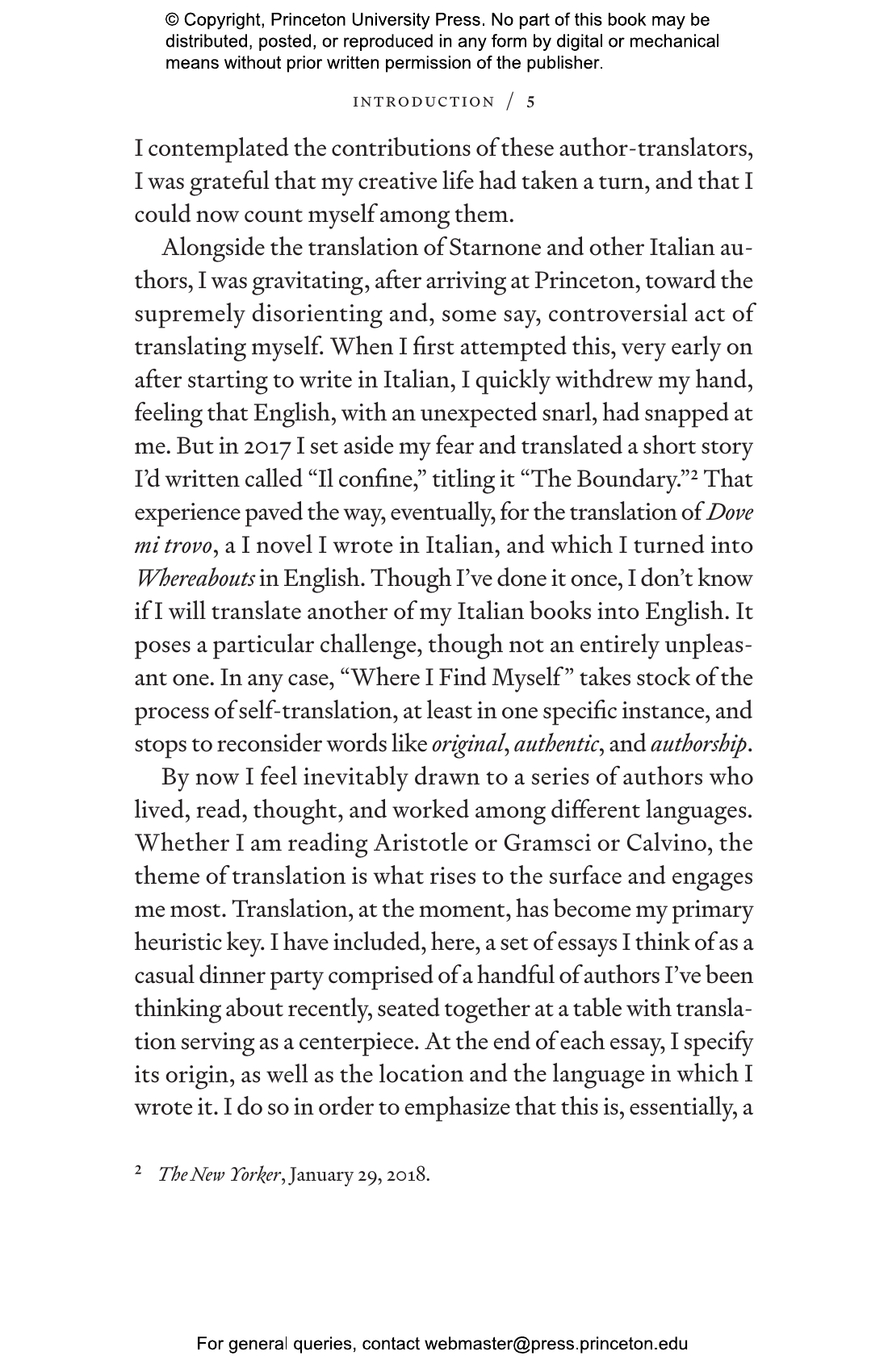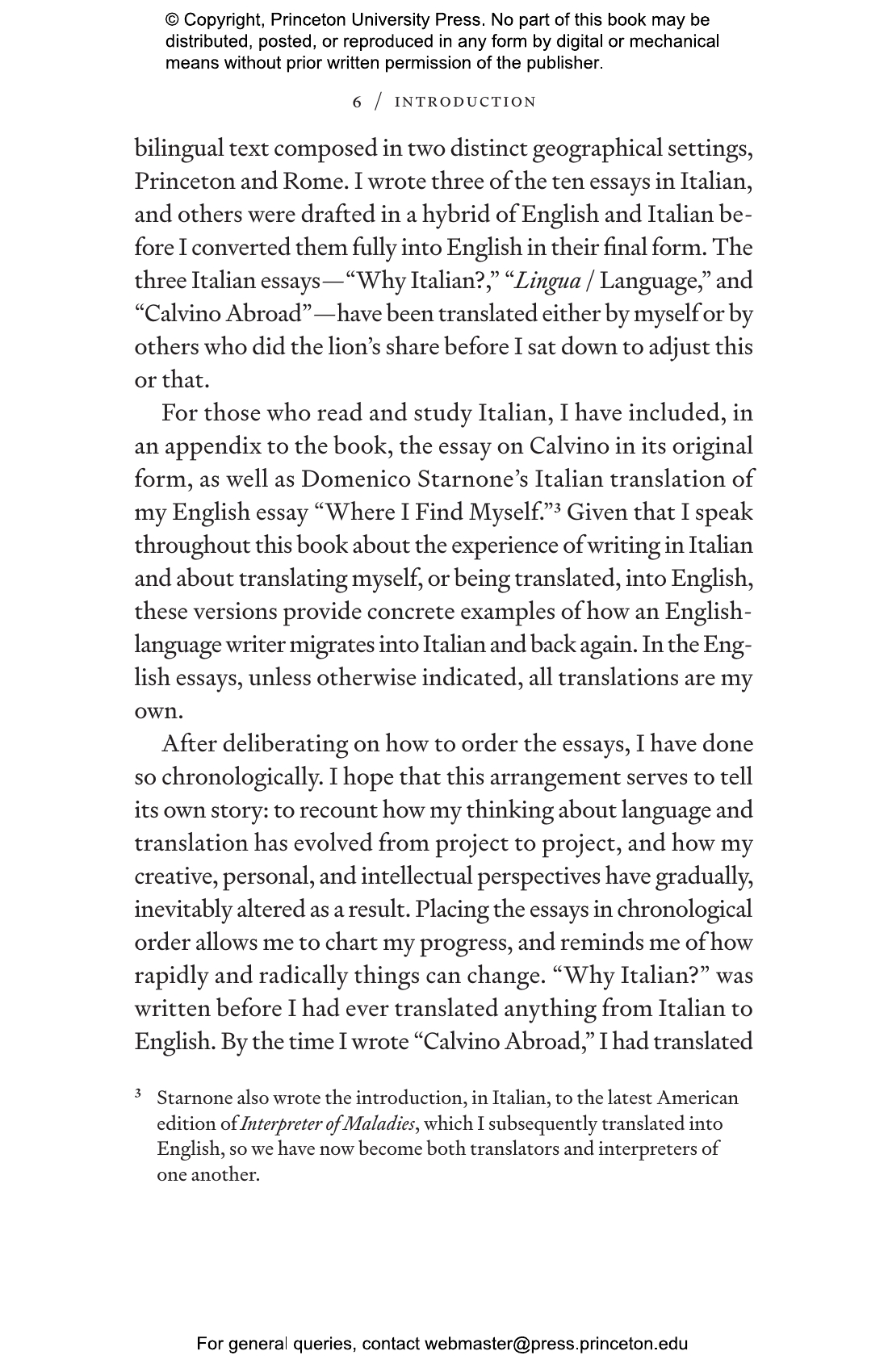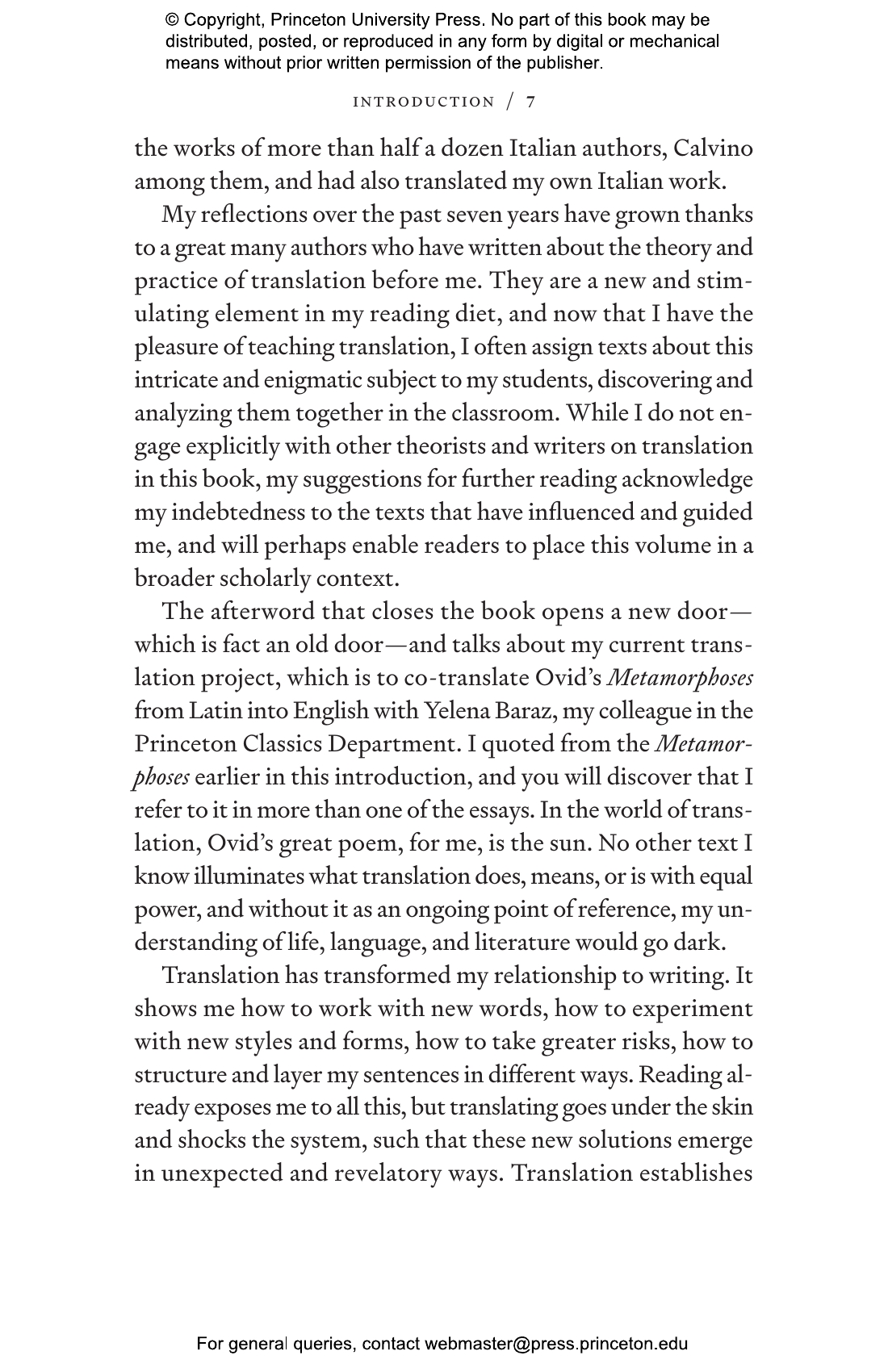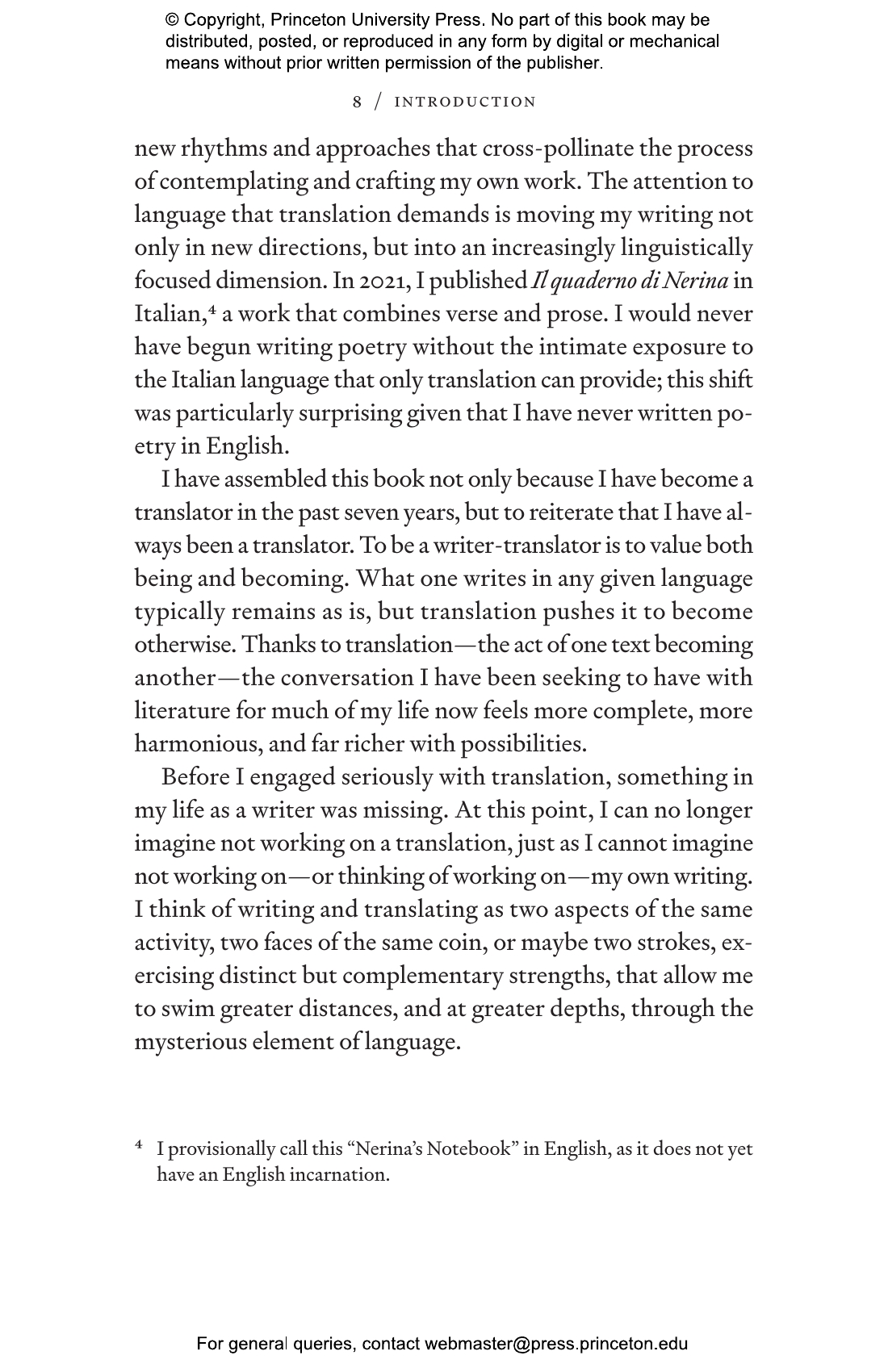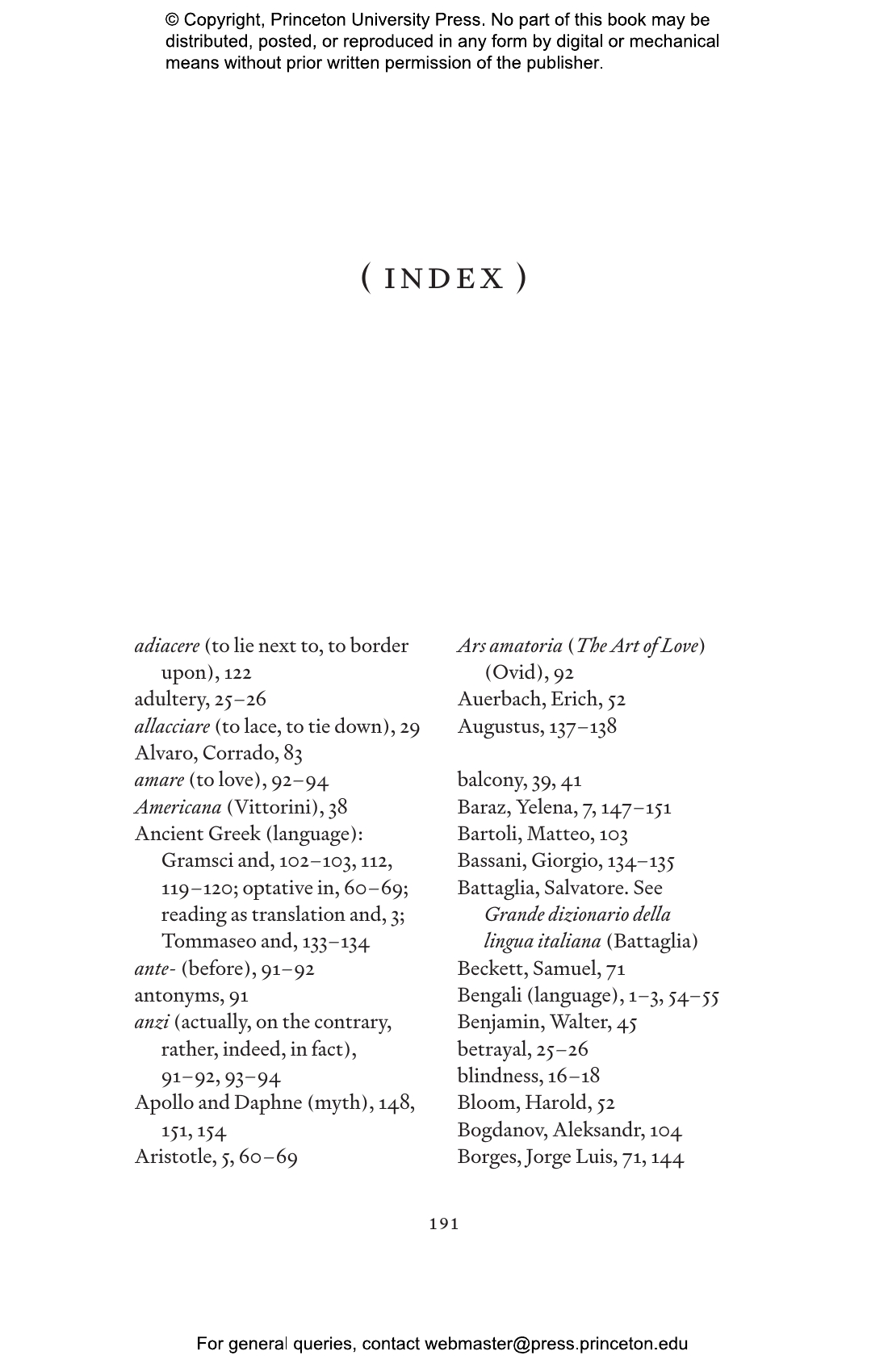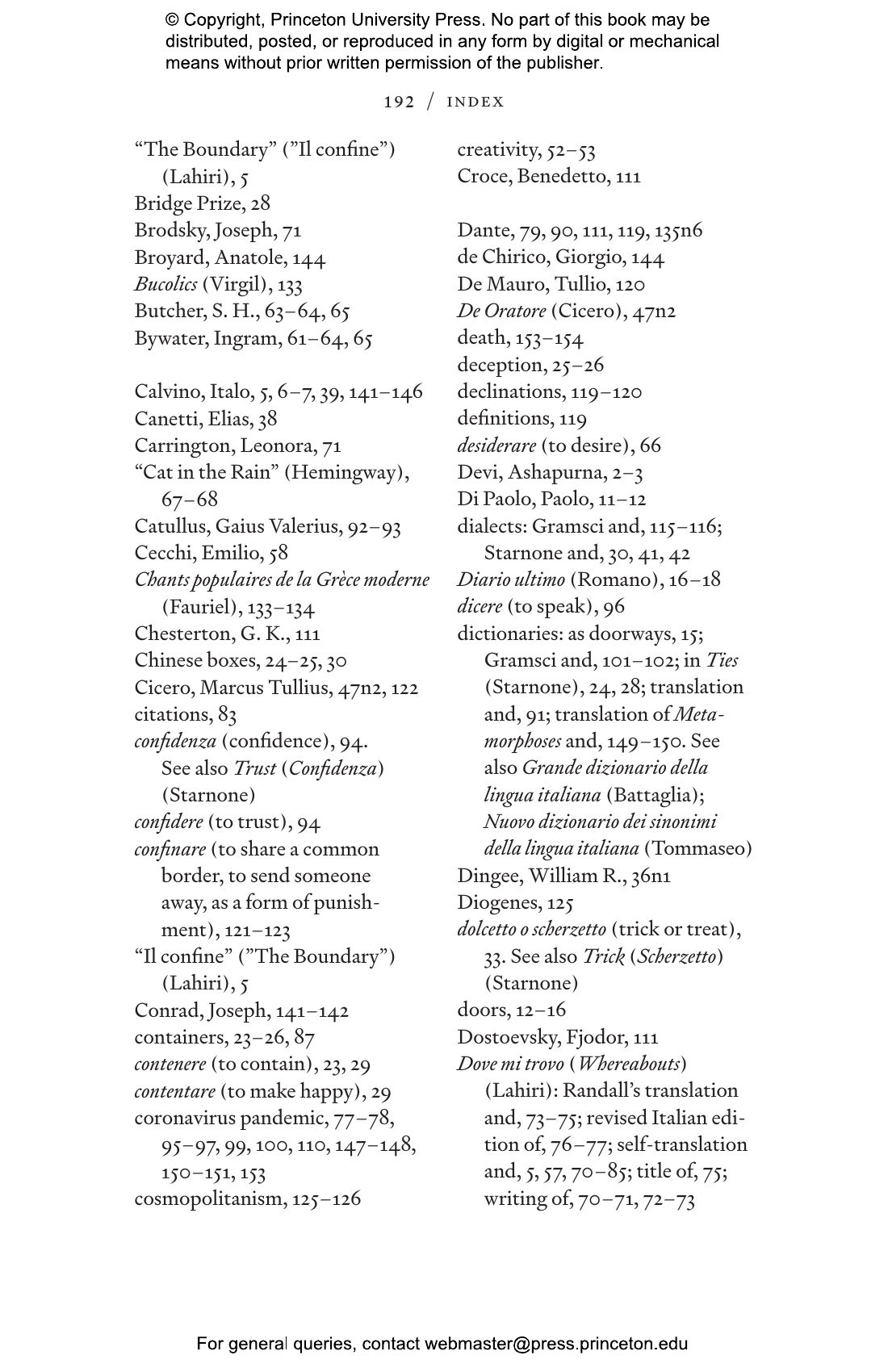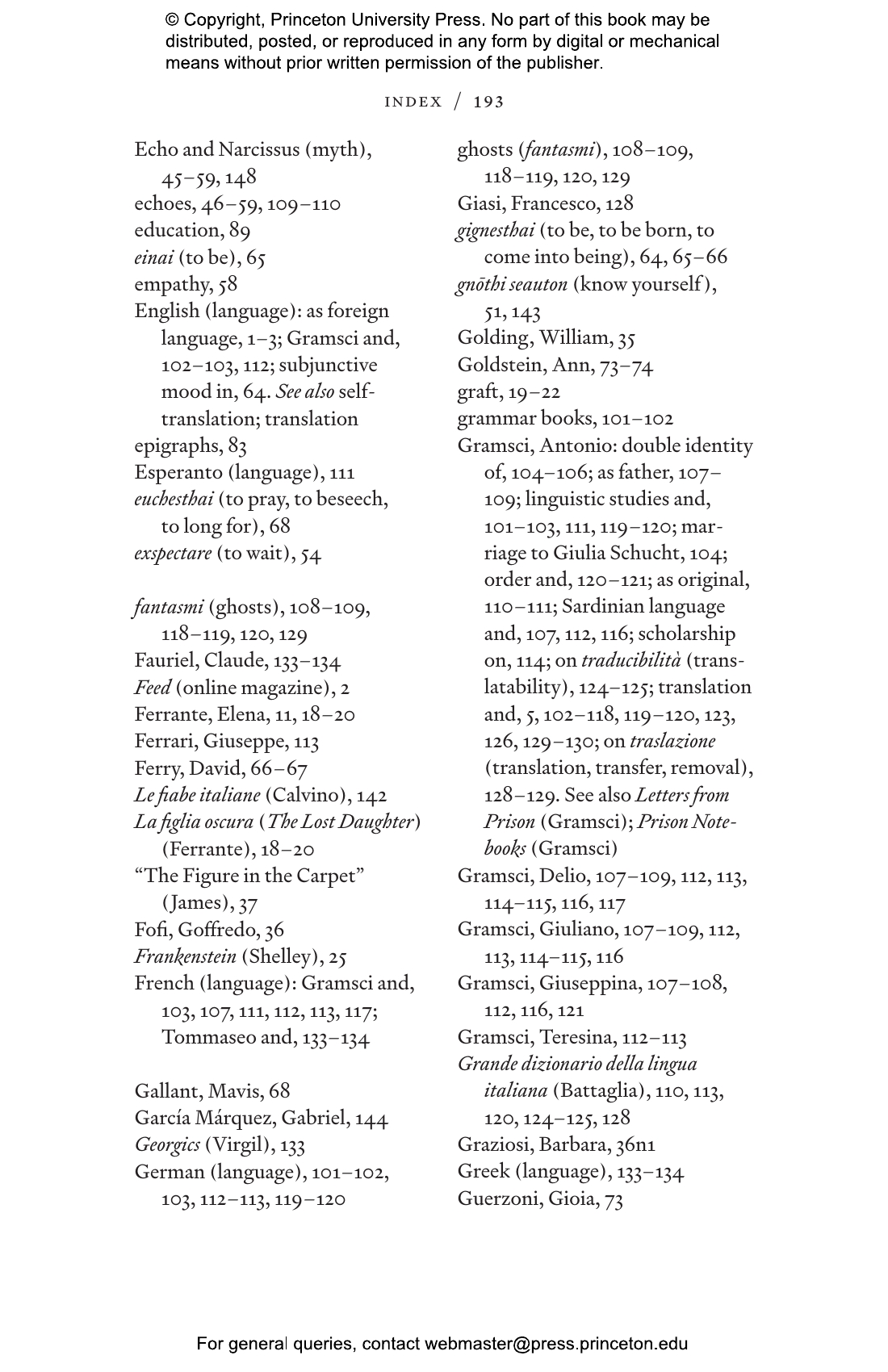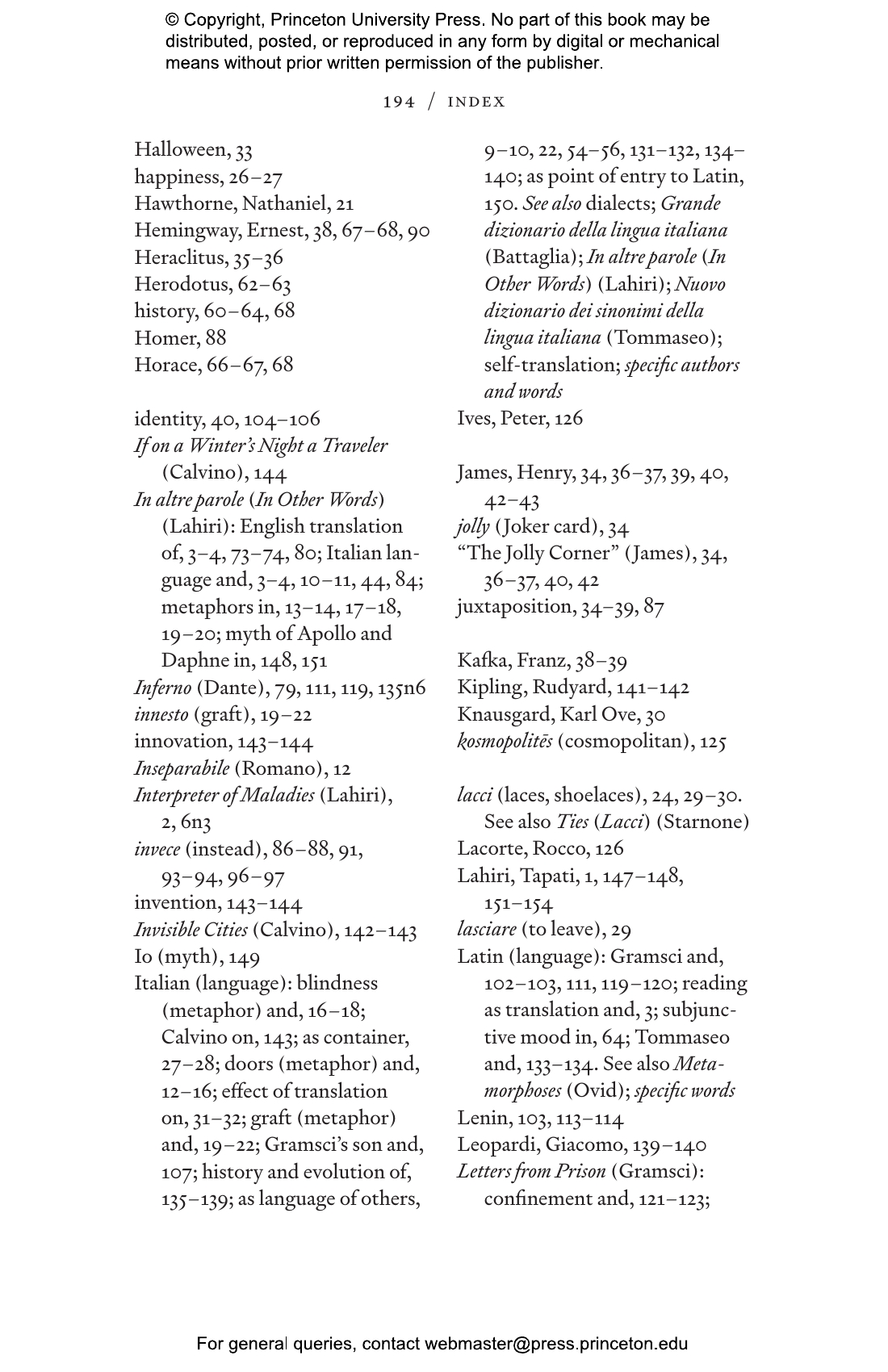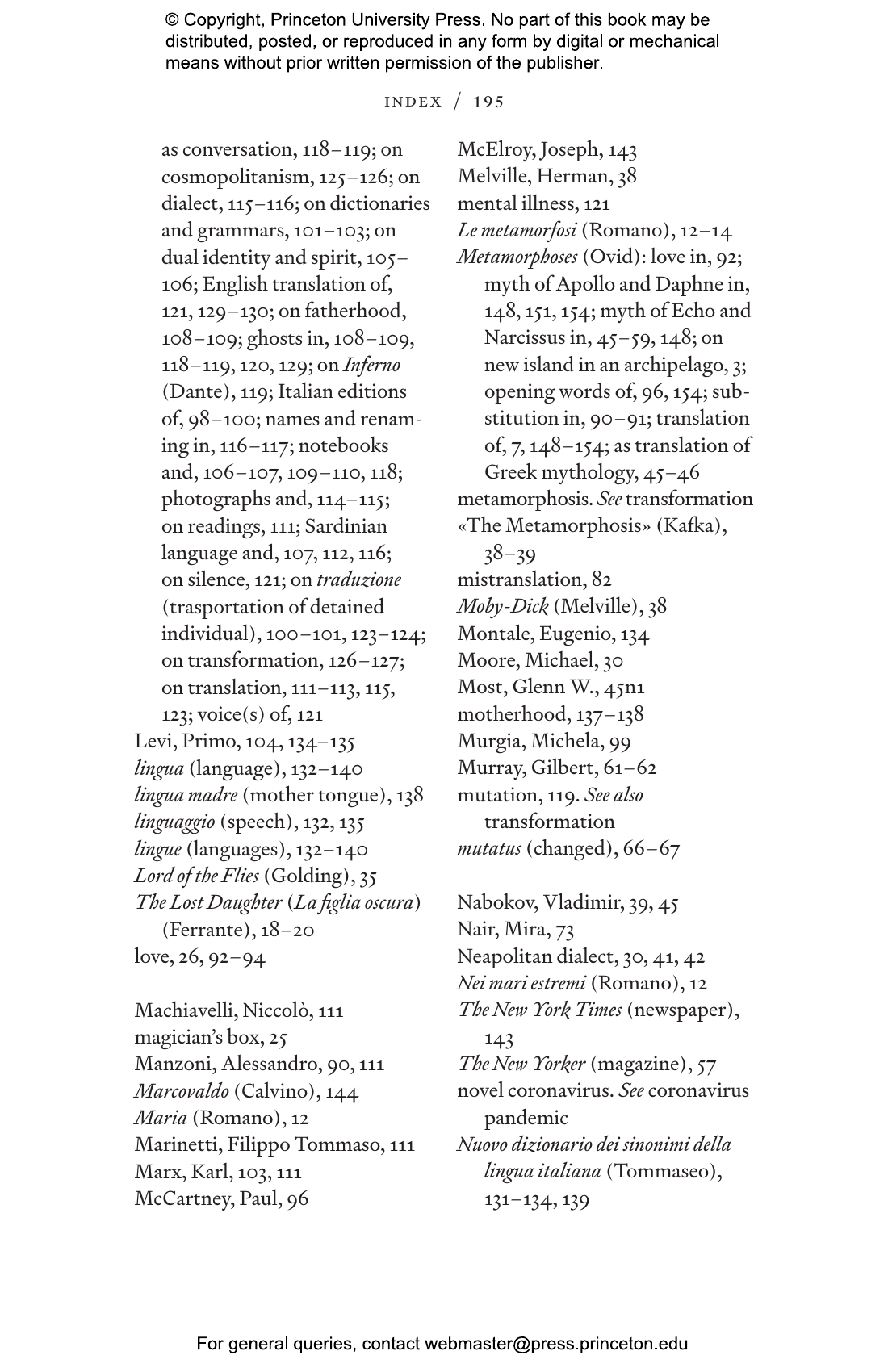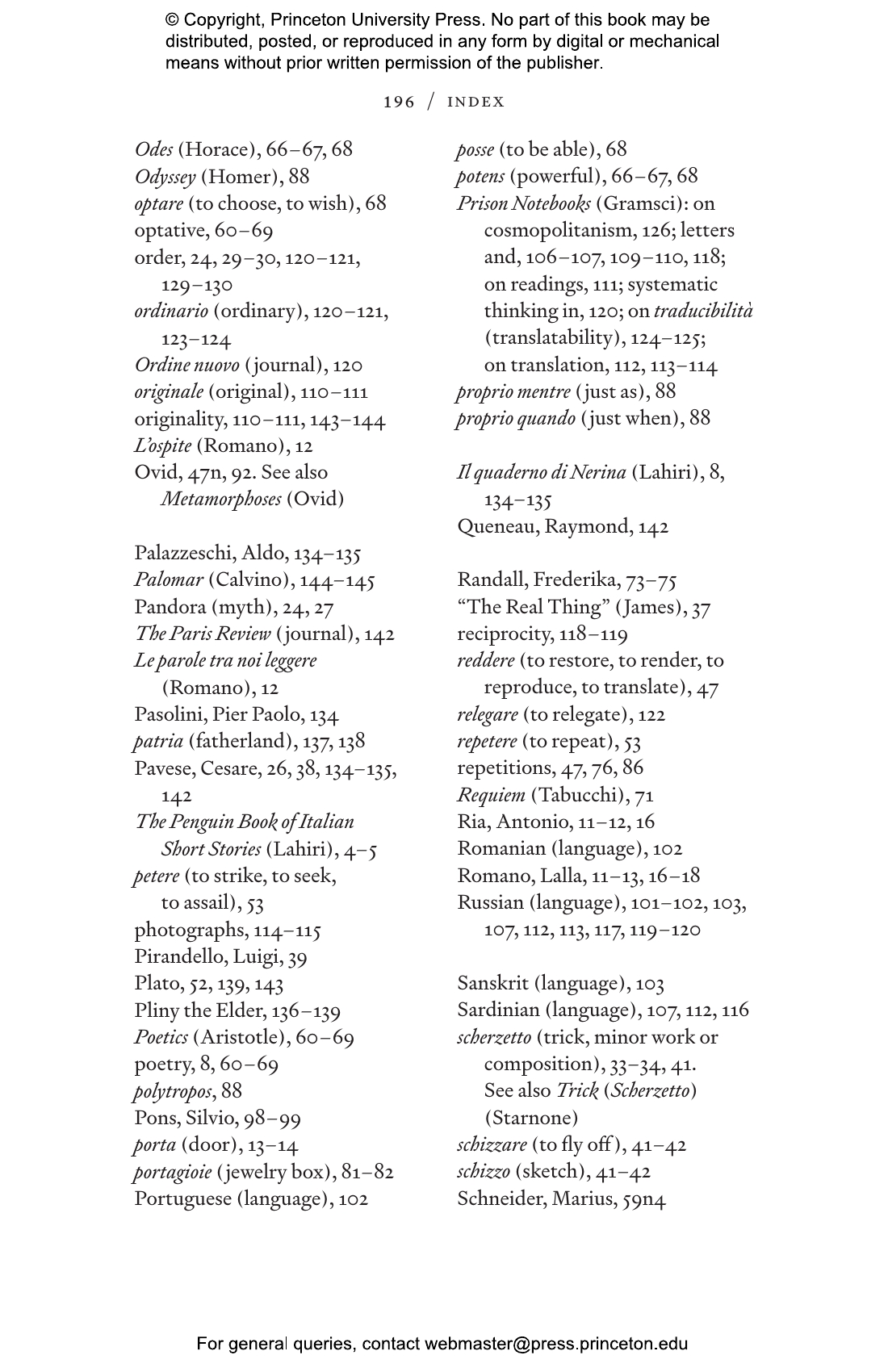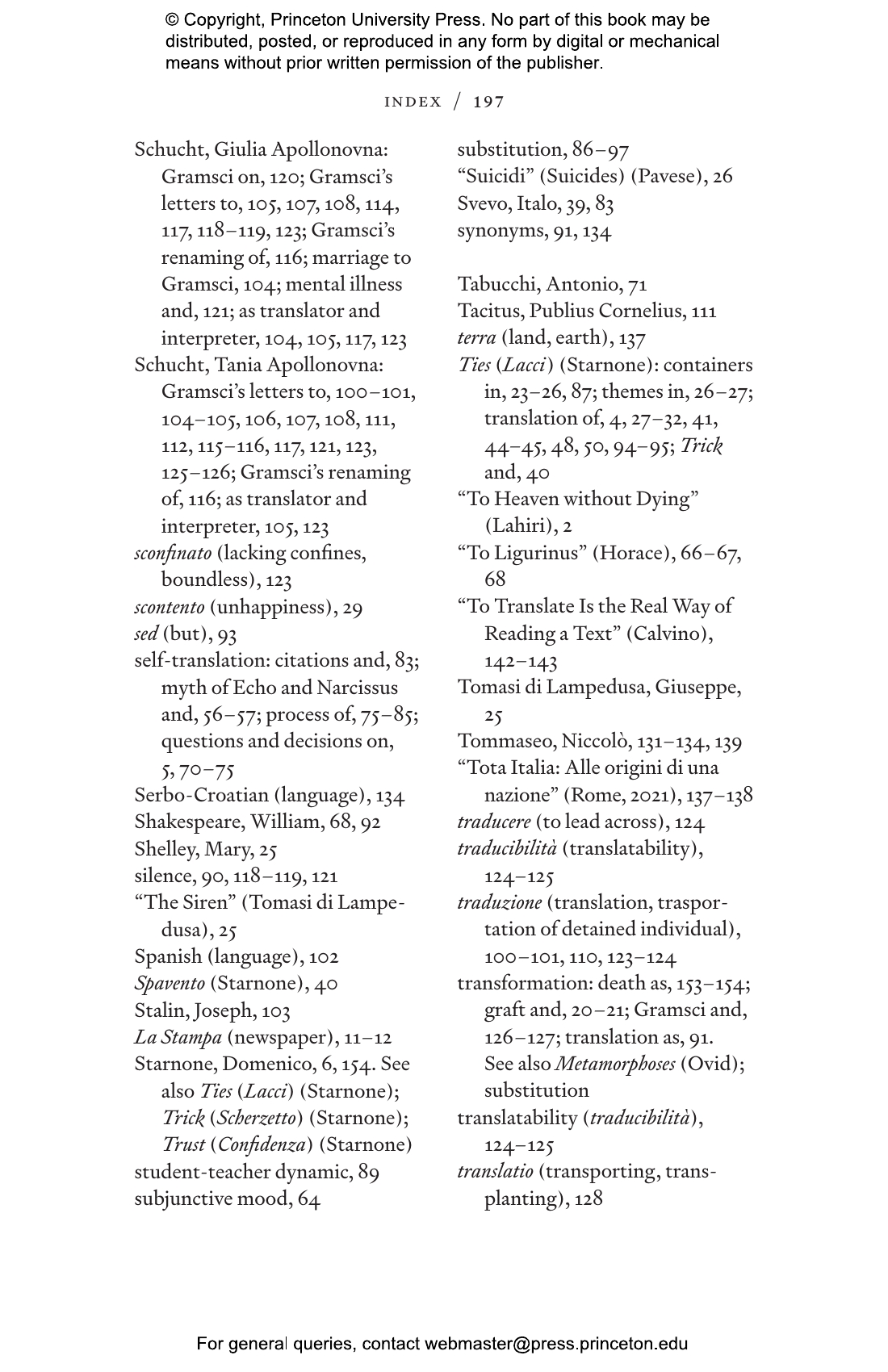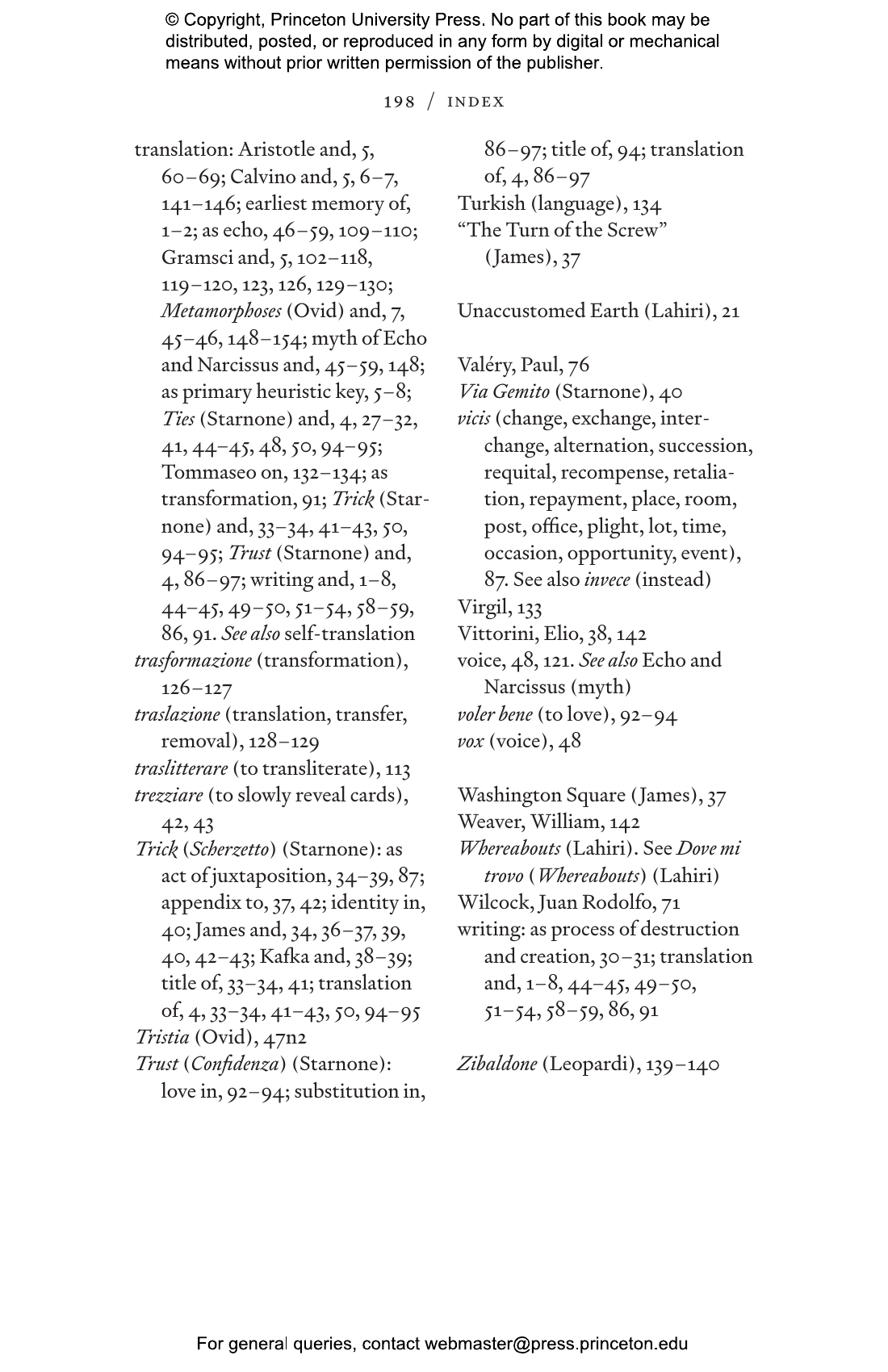"Wonderful. . . . Through language, we come to know ourselves: Lahiri’s work shows how it is always possible to expand that knowledge."—Erica Wagner, Harper’s Bazaar UK
"[Lahiri’s] observations are as plentiful as they are enlightening."—Juliana Ukiomogbe, Elle
"[In this book] a vision emerges of translation as a site where the physical and the textual, the extraordinary and the ordinary, intersect."—Polly Barton, Times Literary Supplement
"[Lahiri] is excellent. . . . Translating Myself and Others is a reminder, no matter your relationship to translation, of how alive language itself can be. In her essays as in her fiction, Lahiri is a writer of great, quiet elegance; her sentences seem simple even when they're complex. Their beauty and clarity alone would be enough to wake readers up."—Lily Meyer, NPR
"[Translating Myself and Others] is about the consequences of the apparently simple act of choosing one’s own words. . . . [The] book also contains a hope for the liberating power of language."—Benjamin Moser, New York Times
"[A] series of passionate [and] thoughtful essays."—Frank Wynne, The Spectator
"[Translating Myself and Others] movingly describes [Lahiri’s] history with translation from her experiences as an immigrant child . . . to her early literary-translation efforts and her eventual decision to move to Rome and learn Italian."—Vulture
"�ʴDZ�پ���."—New York Magazine
"A wry collection."—Adam Rathe, Town & Country
"[Lahiri’s] voice is a strong one in the current campaign to give translators more recognition. Her candidness about the hardships of translation and her enthusiasm for its rewards make you want to hear more from these fascinating figures, who spend so much time in others’ voices but have not lost the use of their own."—Camilla Bell-Davies, Financial Times
"Digestible and approachable. . . . The thought-provoking collection makes for a sharp and luminous exploration of Lahiri’s relationship to language, translation, and literature and made me want to finally tackle my goal of learning a second language."—Jordan Snowden, Apartment Therapy
"[A] memoir of the experience [of learning Italian], recounted with passion and insight."—Gregory Cowles, New York Times
"Lahiri explores her relationship with literature, translation, and the English and Italian languages in this exhilarating collection. . . . Lucid and provocative, this is full of rewarding surprises."—Publishers Weekly, starred review
"A scrupulously honest and consistently thoughtful love letter to ‘the most intense form of reading…there is.'"—Kirkus Reviews, starred review
"The collection is singular for Lahiri’s ability to integrate the personal and the theoretical, drawing her examples from literature and from life. . . . Lahiri writes so beautifully that this collection will have broad appeal for anyone interested in literary essays."—David Azzolina, Library Journal
"[An] absorbing new collection of essays. . . . Translating Myself and Others is a subtle yet ultimately engrossing work, somewhat academic at times, yet infused with the kind of understated, often startling capacity for observation that has always been Lahiri’s literary superpower."—Bookpage
"Translating Myself and Others is a thought-provoking collection of essays about the art of modern translation."—Foreword Reviews
"Anyone interested in the art of translation will be engrossed by Translating Myself and Others by Jhumpa Lahiri."—Martin Chilton, The Independent
"Lahiri’s ruminations on translation are relatable and luminous. . . . This book embraces simplicity-in-complexity, making it appropriate for both the Lahiri devotee and the uninitiate."—Carmen Acevedo Butcher, Christian Century
"[Lahiri] explores [translation] with her customary rigor and candidness in this new essay collection, featuring several pieces originally written in Italian and translated into English by Lahiri for the first time, an act of metamorphosis as dazzling to her as it is to the reader."—Chicago Review of Books
"Throughout these essays, it’s as if Lahiri, feeling misunderstood, were hoping to build a literary home for herself that is ample enough to accommodate her lives as author, translator, academic, and language learner. A home in which she can write, on her own terms, in whatever language she wants, and think, on her own terms, about whatever subject she wants."—Julia Sanches, Astra
"The essays . . . are master classes in translation theory and in critical writing about translation. . . . Fascinating and insightful writing."—Lauren Elkin, American Scholar
"These essays . . . demonstrate the depths of [Lahiri’s] love for her adopted language. . . . Readers will have a newfound appreciation of the translator's ability to illuminate."—Michael Margas, Shelf Awareness starred review
"In this collection of essays, Lahiri gives insights into her processes, as well as penetrating and perceptive thoughts on the act of translating that will be especially illuminating for readers who enjoy translated works."—Joe Rubbo, Readings
"This cool, detached book bristles with life and love."—John Self, Observer New Review
"There is great joy and intrigue to be found in Lahiri’s ruminations on self-translation. . . . [Translating Myself and Others] is a love letter to not only translation, but to literary criticism as a whole.”—Malavika Praseed, Chicago Review of Books"—Malavika Praseed, Chicago Review of Books
"[A] portrait of intelligent, sensitive and deeply humane curiosity . . . inspiring."—James Kidd, South China Morning Post
"[T]his latest set of essays proves [Lahiri’s] skill lies in the craft of experimenting with what language can do, both in Italian and English, and both as a writer and as a translator."—Anandi Mishra, Frieze
"Translating Myself and Others feels at once ambitious and safe, playful and formulaic, variegated and quasi-myopic."—Carolina Iribaren, Hopscotch Translation
"[In Translating Myself and Others] Lahiri achieves the task of portraying her profound love for linguistics and the ways languages give new life to one another in translation. . . . Lahiri’s writing is impeccably strong."—Amanda Janks, Zyzzyva
"Readers . . . will find themselves immersed in a voyage of discovery not just of what makes Lahiri the writer and the translator tick, but of how these two facets or ‘containers’ inform, extend, challenge and ultimately re-create her, while at the same time providing much food for thought for the reader."—Lilit Žekulin Thwaites, Sydney Morning Herald
"These deeply thoughtful meditations . . . illuminate the art of literary alchemy."—Saga Magazine
"Eloquent. . . . [Lahiri] explores what it means to be a translator, how translating enhances her identity as a writer and vice versa, and how these multiple identities are mutually enriching"—Hayley Armstrong, In Touch
"A lyrical meditation on translation and a manifesto establishing translation as an artistic pursuit as creative and authentic as writing in the original language."—Lopamudra Basu, World Literature Today
"Anyone interested in the challenges of translating literary works from one language to another will find this book fascinating. . . . It’s certainly a richly rewarding [read]."—Terry Freedman, Teach Secondary
"A deep meditation on the art of translation. . . . Lahiri offers a straightforward but profound and lyrical theory of translation."—Lucky Issar, Economic & Political Weekly
"A lucid and engaging reflection not only on what it means to translate a text and to properly acknowledge that work, but also what translation signifies beyond the act of individual words being noted down in another language."—Franklin Nelson, Wasafiri Magazine
"Rich, deep and, above all, beautifully written, Translating Myself and Others exemplifies the power of words, language, art, ‘‘to explore the phenomenon and the consequences of change itself’’."—Cushla McKinney, Otago Daily News
"Those interested in literary translation will value Lahiri's personal, erudite exploration of her life as a writer-translator."—Choice
“Jhumpa Lahiri is a marvel, a writer with the courage to renounce virtuosity for the sake of vulnerability, experiment, and growth, and it’s been wonderful to watch her love affair with the Italian language unfold. In these essays, she delves deep into the fertile interstices of and between languages, giving us a book rich with insights and pleasures.”—Susan Bernofsky, author of Clairvoyant of the Small: The Life of Robert Walser
“A remarkable account of Jhumpa Lahiri’s journey from English to Italian and back. Her pages on the myth of Echo are the most poignant and eloquent account of the translator’s art that I have ever read.”—Michael F. Moore, translator of Alessandro Manzoni’s The Betrothed
“With this collection of elegant essays, Jhumpa Lahiri makes her career as a writer of two languages and, increasingly, as a translator between them seem less an eccentric adventure than a necessary one. No man is an island—and no language, either.”—David Bellos, author of Is That a Fish in Your Ear? Translation and the Meaning of Everything
“In these stunning essays, Jhumpa Lahiri brilliantly investigates the fluctuating borders between writer and translator, language and identity, artist and art. Her intellectual and deeply personal inquiries—reminiscent of Hannah Arendt, Virginia Woolf, and Susan Sontag—challenge us to engage with our own mysterious and metamorphic relationship to language and who we are.”—Jenny McPhee, translator of Natalia Ginzburg’s Family Lexicon
